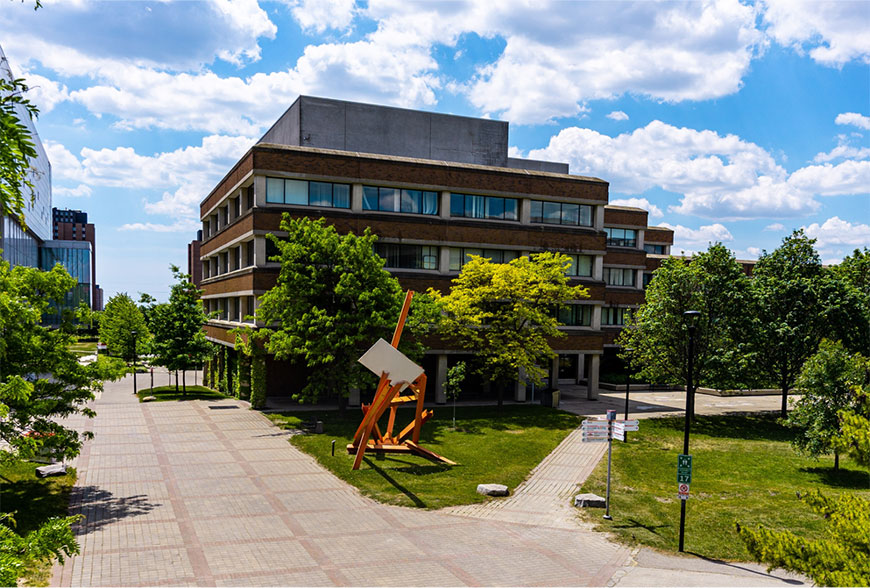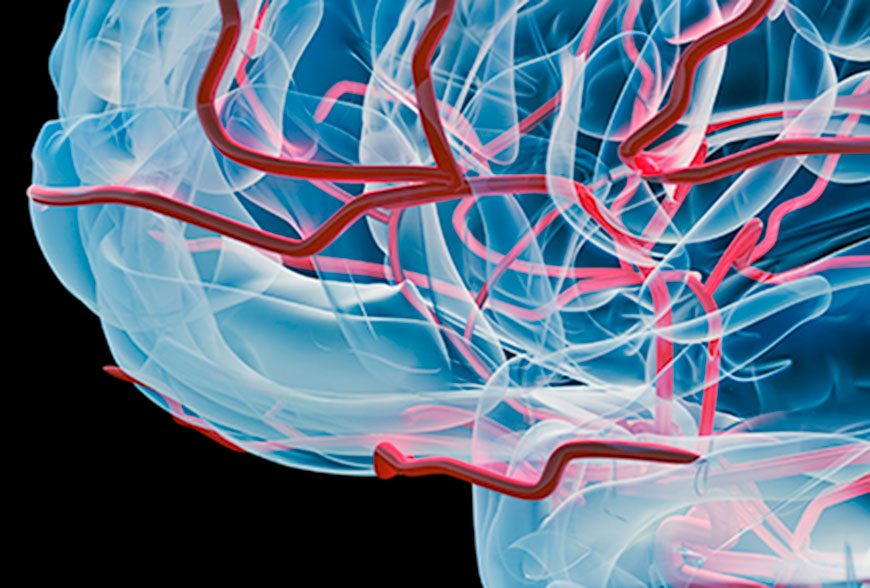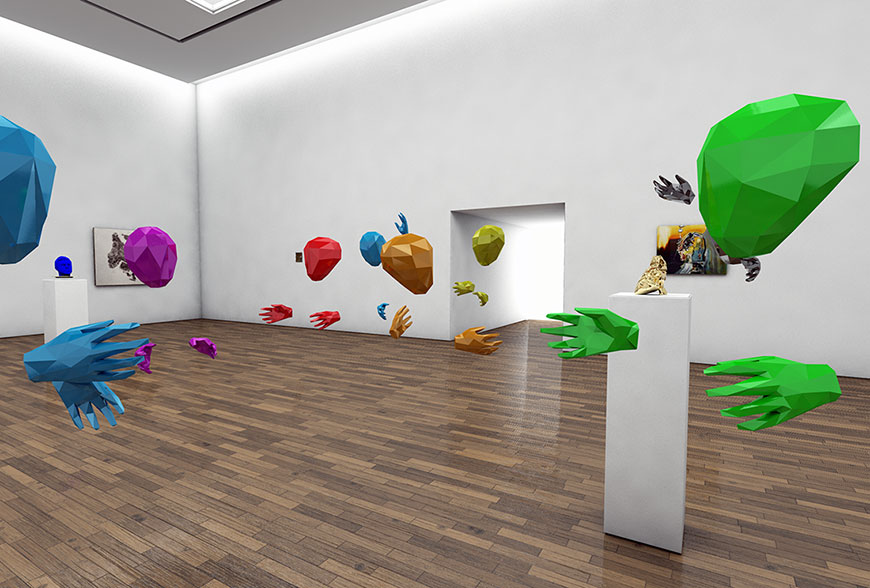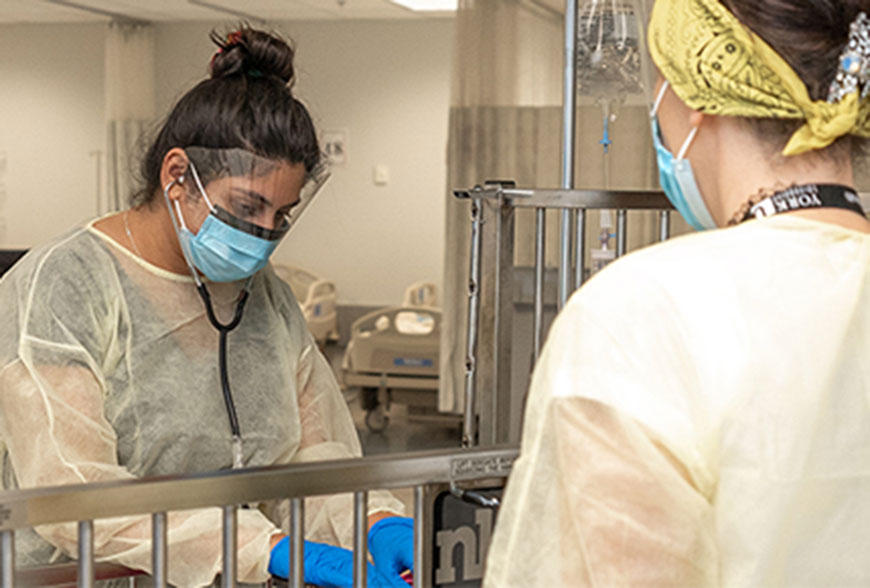Every York University graduate, regardless of background or field of study, must be equipped with the knowledge, transferable skills, and values necessary to navigate a 21st century world in which change is the only constant. So when the COVID-19 pandemic necessitated a sudden switch to remote teaching and learning, we were ready to rise to the challenge.
And even as we invented new ways to deliver instruction and experiential education online, we continued to create innovative programs, courses, and learning opportunities to address emerging issues and labour market needs that called for new pedagogical approaches and cross-disciplinary thinking. Now we are reflecting on the lessons we have learned from the pandemic, and considering how they will inform our future.
49
degree options offered
200+
undergraduate and graduate programs offered
8,500+
students benefited from experiential education in 2020–21
Top 10
top 10 ranking in Canada for psychology, business, and education programs (Maclean’s magazine)
After breaking ground on York University’s long-awaited Markham Campus in September 2020, construction continued to move along swiftly throughout the 2020–2021 academic year, and the campus remains on track to welcome its first students in Fall 2023.
As a catalyst for learning, research, and innovation, and an anchor institution within a strong and vibrant region, the Markham Campus will offer students innovative, relevant, job-ready academic programming and research opportunities focused on digital media arts, engineering and technology, entrepreneurship, management, new media, and communications.
The campus will build on the strong relationships York University has in the City of Markham and York Region to help fulfill future labour market and civic leadership needs by providing students with the 21st-century skills that are required for economic competitiveness and community development.
York launched the Faculty of Environmental and Urban Change in September 2020. The new Faculty is already gaining a reputation as an international leader in critical and innovative urban, environmental and geographical knowledges and skills, with a strong focus on sustainability and justice.
Headed by Dean Alice J. Hovorka, the Faculty emphasizes hands-on, experiential education. Among the new academic programs offered by the Faculty are degrees in environmental arts and justice, sustainable environmental management, and a certificate in climate solutions and sustainable energy.
In Fall 2020, the Faculties of Health and Science launched an interdisciplinary undergraduate neuroscience program, which is available to students entering from one of three home programs: biology, kinesiology and health science, or psychology.
The program is heavily experiential and ends with a capstone course that allows students to conduct their own research project, supervised by one of 20 core neuroscience researchers.
Professor Denise Henriques, a neuroscientist whose home program is the School of Kinesiology & Health Science in the Faculty of Health, has been selected as the program’s inaugural coordinator.
In the midst of the pandemic, students learned about political and justice issues around food by taking a virtual tour of a farm at harvest time.
York University has a long-standing relationship with Black Creek Community Farms, but this year, the pandemic made it difficult to arrange on-site visits. So Assistant Professor Sarah Rotz took her Land and Food Politics class there virtually, with a tour led by farm staff just as harvest season was beginning. The class also included a number of virtual guest lectures by members of Indigenous nations, policy specialists, and agricultural workers.
The fourth-year capstone course examines political and social issues around food such as land justice, sustainability, and oppression and marginalization.
Curating a museum exhibit is normally a hands-on job. But with museums closed, Professor Anna Hudson had to figure out how to teach her Curatorial Placement course without her students ever stepping into a museum. She solved the problem by using a virtual reality exhibition platform that was invented by York alumnus Brendan McNaughton (BFA ’16).
McNaughton created the Art Gate VR platform to allow curators to mount exhibits virtually. Hudson’s class used the platform to recreate a groundbreaking Art Gallery of Ontario exhibit of Inuit art from 2018 called Tunirrusiangit: Kenojuak Ashevak and Tim Pitsiulak.
Students recreated and modified the exhibit specifically for the VR platform. They also led tours and hosted a panel with a member of the original curatorial team, Laakkuluk Williamson Bathory, and AGO curator Georgiana Uhlyarik.
In May 2021, York announced its intentions to move forward on a proposal for a new School of Medicine, which will focus on training family and community doctors. The School will support an integrated and preventive model for health care that aims to promote care beyond the walls of hospital facilities.
York’s new School of Medicine is expected to create greater health equity for diverse communities in the GTA and underserved communities across Canada, including the more than one million Ontarians who do not have access to primary care.







